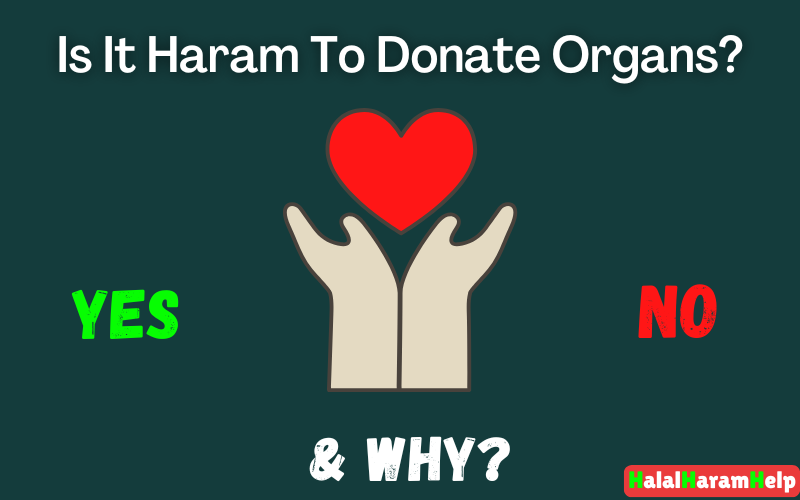Organ donation is a topic of great significance in the modern world, especially with advancements in medical science that allow lives to be saved through organ transplants.
For Muslims, this practice raises a crucial question is it haram to donate organs in Islam, particularly after death?
If you’re confused about this, let’s explore the Islamic perspective on this matter, along with the conditions and opinions that shape its permissibility.

Is It Haram To Donate Organs?
No, organ donation is not haram in Islam, but certain conditions must be met, making it a permissible and often encouraged act of saving lives.
The Islamic Perspective On Organ Donation
Islam places immense value on preserving and saving lives. The Quran states:
“Whosoever saves a life, it is as if he has saved the whole of mankind.” (Quran 5:32)
This verse emphasizes the sanctity of life and encourages acts that contribute to saving lives.
Therefore, donating organs, whether during life or after death, aligns with this principle under certain conditions.
It is generally considered permissible in Islam if it fulfills the requirement of helping others without causing harm to the donor or recipient.
You might also like to know is it haram to donate blood.
Is It Haram To Donate Organs After Death?
No, donating organs after death is not considered haram in Islam as long as specific conditions are met.
After death, the human body is regarded as a sacred trust of Allah and must be treated with respect and dignity.
However, if organ donation serves the purpose of saving lives, it is seen as an act of charity and selflessness, which is highly encouraged in Islam.
Also see is bitmoji haram in islam.
Conditions For Permissible Organ Donation After Death
Organ donation after death is only permissible if the following conditions are met:
- Consent: The donor must have explicitly given consent during their lifetime, either verbally or in writing. Discussing this decision with family members is highly recommended to avoid any confusion.
- Dire Need: The recipient must be in urgent need of the organ, and there should be no other viable alternatives available. The intention behind the donation must be purely to save a life.
- No Monetary Gain: Selling or trading organs for monetary benefit is strictly prohibited. The act of organ donation must be entirely charitable and altruistic.
Divergent Opinions Among Scholars
While many Islamic scholars permit organ donation under the conditions mentioned above, some hold differing views.
Critics argue that the human body is a trust of Allah and should not be altered, even after death. They believe that organ donation might equate to mutilation, which is prohibited in Islam.
Despite these concerns, the majority opinion supports organ donation as long as it aligns with the principles of saving lives and maintaining dignity.
Is Organ Donation Halal When Alive?
Organ donation during one’s lifetime is also permissible in Islam, provided that it does not harm the donor.
For example, donating a kidney to a family member or someone in need is seen as an act of kindness and mercy.
However, if the donation risks the donor’s health or life, it becomes impermissible.
Key Conditions For Organ Donation While Alive
- The donor’s health and well-being must not be compromised.
- The act must be voluntary, without any external pressure or coercion.
- The intention should be solely to save a life or improve the quality of life for the recipient.
The Act of Charity (Sadaqah)
In Islam, organ donation can also be viewed as a form of sadaqah jariyah (continuous charity).
This means that the benefit of the donor’s act continues even after their death, as it helps others lead better lives.
Such acts of selflessness hold a special place in Islamic teachings.
Also see is anime halal.
Conclusion
To answer the question, Is it haram to donate organs after death? No, it is not haram as long as the act is carried out with the correct intentions and adheres to the conditions outlined by Islamic teachings.
Organ donation is an act of compassion, mercy, and charity that aligns with the Quranic principles of saving lives and benefiting humanity.
However, due to varying interpretations among scholars, Muslims are encouraged to consult trusted religious authorities or scholars to ensure their decision aligns with their beliefs.
By doing so, they can make an informed choice that honors their faith while contributing to the well-being of others.


